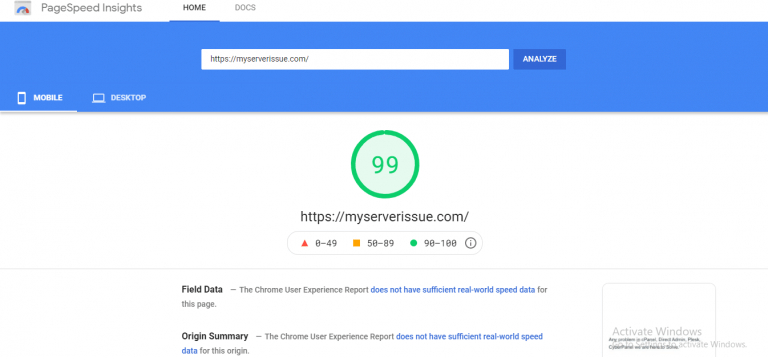
🚀 Limited Time Offer
Enjoy lightning-fast performance, robust security, and 24/7 support.
Get Free Web Hosting For 1 year
Cloud Web hosting
Dedicated Cloud Hosting
Lifetime Cloud Hosting
Our Experience...
With an experience of more than 7+ years in Web hosting Services, we have successfully handled 1.2K+ users on the net. Till this date, we have provided more than 13K Domains in our workspace!
Find The Perfect Domain Name.
.com
.net
.in
.org
.info
.store


Speedup your website? Cloud Hosting
Cloud Hosting is for everyone. We believe that everyone should have the opportunity to experience the benefits of cloud hosting. Therefore, we have made our Cloud Hosting services available at very affordable rates.
We provide high performance, scalable cloud hosting solutions on Amazon, Rackspace, Softlayer, OpenStack, Google Cloud Platform and on-premise. We are the only hosting provider that offers comprehensive cloud solutions on all major cloud platforms. Our passion is to put clouds on everyone’s hand on planet earth.



Why us
Get website speed up to 99-100 score on Google Page speed.
This helps your Search Engine Optimization (SEO) efforts, which may lead to better ranks in search results. Not to add, if you have an online shop, a better responsive site might enhance sales conversions. we’ll go through LiteSpeed Cache, which is one of the finest and most complete WordPress caching plugins available. Our Cloud Hosting is an all-in-one solution for all websites.

Unlimited Features of Cloud Hosting
Easy To Setup.
Once you have purchased the desired domain you just have to install the WordPress extension and hurray! Go get sarted!!!


Simply Faster Sites.
In case of a hardware failure, the server can be spun back with minimal downtime securing no data loss due to the redundant storage architecture. Also, our hosting plans run only on servers that store your data on Solid-State Drives (SSDs).
24/7 Chat Support.
Our support team will help you 24/7 on all working days of the week. You will be helped through emails, calls, and messages. We have the feature of live chat session too!

Features of cloud hosting

Powerful hardware
Cloud hosting is a type of internet hosting service that allows users to share and access computer data and applications over any public or private network.
Cloud Hosting with powerful hardware enables you to store your website and your data in the cloud. It’s reliable, secure, scalable, has built-in backup options and is available from anywhere you have an internet connection.Our main objective is to provide reliable cloud hosting services with powerful hardware. We strive to be the best of the best in our business and are constantly working to make it happen.
We provide cloud server hosting with powerful hardware. With us you can run multiple applications at the same time without facing any downtime or performance issues. The servers are located in the USA, Europe and Asia.Our mission is to create a hosting company that provides the most efficient cloud hosting services for people all over the world, while maintaining an affordable price.
We ensure high uptime for your web applications, databases, and email. Our cloud hosting servers are located in secure data centers that provide redundant power supply and expert technicians to monitor the servers 24/7.
SSD - Only cloud
We provide Cloud hosting with SSD cloud only which offers a wide range of cloud hosting services. Cloud hosting with SSD cloud only is a perfect cloud server for you. It provides the best and high performance and it’s easy and fast to use.
With SSD Cloud Only, you can now host your website on a cloud server with a solid-state drive. Your content will load in a matter of seconds and you would be able to manage your hosting from anywhere in the world. As we back up our services with a 99.9% uptime guarantee, you don’t have to worry about any downtime even if something unexpected happens.
Our services are constructed to help you succeed in your business by providing the best possible web hosting experience. It is our mission to provide you with a rock-solid, fast and reliable infrastructure that will give you the power to do anything you want online.
The ssd cloud only powered by Intel/ADM is a powerful cloud server solution designed to support dedicated virtual servers and high-performance web solutions. It provides outstanding performance and superior reliability for your mission-critical applications.


99.9% uptime guarantee
There are a number of servers bundled up together which are connected to each other. As a result, you get to experience the fastest web speed on your website with 99.9% uptime!
We are the company that provides cloud hosting service with uptime guarantee. This is achieved by maintaining multiple availability zones of servers owned by us in multiple locations of the country. We provide our services to clients at an affordable price.
With the help of our cloud based web and mobile hosting services, you can now set up server infrastructure in minutes. You can host multiple websites, apply continuous upgrades and follow a single unified interface to manage your servers.
Cloud hosting with uptime guarantee from Alpharapid is a best cloud hosting service provider in India. We provide cloud hosting services with 100% up time and you can host any web application on our servers.
We have a team of system administrators who are highly experienced and will take care of your server at all times. You can migrate your server anytime to us or from us without facing any downtime.
Our servers are secure, reliable and most importantly affordable. For businesses of all sizes, we provide dedicated servers with on-demand elasticity to match your growing demands. Get started today!
Affiliate Program
You will receive a minimum of 30% on all of our hosting packages!
Our aim is to provide high-quality cloud computing services to individuals and businesses at an affordable price.We provide cloud hosting services with affiliate programs. Our company helps you run your website business more effectively by providing high-quality cloud hosting solutions designed to meet your needs and budget.
There are many companies in this industry but our company provides you with maximum facilities at a minimum price. So, if you are looking for cloud hosting then choose us.
Our Cloud hosting platform offers a full suite of cloud computing services such as storage, virtual machines and file sharing. It is easy to use and offers unlimited bandwidth and disk space. We offer an affiliate program for all customers who refer us to their friends or business partners.
We also provide various plans with different features and prices. It’s very easy to use, just choose a plan you need, copy your unique link and share it with the world. If someone signs up using your link , you will be rewarded 30% lifetime commission from that customer.


Secure and Reliable
In a world that runs on technology, cloud hosting has become the preferred choice for businesses as well as individuals. The cloud offers unlimited storage and computing power which is exactly what people need to scale up their business needs. But it is not all sunshine and rainbows – security threats are also increasing at a rapid pace because of the larger network of connections between users and cloud servers.
We have years of experience in this field to provide you the best cloud hosting service. Our experts are always there to support you so that you can overcome any problem related to your system anytime.Hosting is one of the main factors for the success of your website.
If you want to have a successful website, then you should host that on a trustworthy server which is safe and secure. We provide reliable cloud hosting services with secure solutions that are affordable for all business sizes. Our servers are scalable so you can upgrade or downgrade whenever you want.
From the creation of a domain name to setting up a website, our team of expert web designers and developers can help you with all your hosting needs. We offer cloud hosting services that are affordable, secure and reliable. Our Cloud hosting services are specially designed for small- to medium-sized businesses looking for enterprise quality at an affordable price.
24/7 Support
We provide cloud hosting with support, which includes management of cloud infrastructure, applications and services. Our clients can enjoy the benefits of our 24×7 support services that are delivered through a variety of channels.With our support, you will get a better understanding of what cloud hosting is all about and how it can benefit your business.
We give you the infrastructure to build your application and then we help you manage that infrastructure. Our team of experts works with you, so you can focus on what matters.
With cloud hosting, you only need to pay for the resources that your application consumes, allowing for a lot more flexibility in terms of resource allocation and usage compared to traditional dedicated hosting. Our cloud servers offer excellent performance with premium network connectivity at an affordable price.
Our Cloud Hosting solution ensures that your business runs smoothly and without any downtime. We provide you with a sleek user interface and provide 24/7 support for your business. With our Cloud hosting services, you can rest assured that your website will be online 24 hours a day, 365 days a year.
Our top-notch support team is available 24/7 via live chat, phone, email & ticket to help solve any issues you may encounter during your service.With us, you can rest assured that your business will run smoothly and fast.

14-Days
Money Back Guarantee!!!
If you’re not 100% satisfied with Alpharapid, we’ll refund your payments.
No hassle, no risk.






